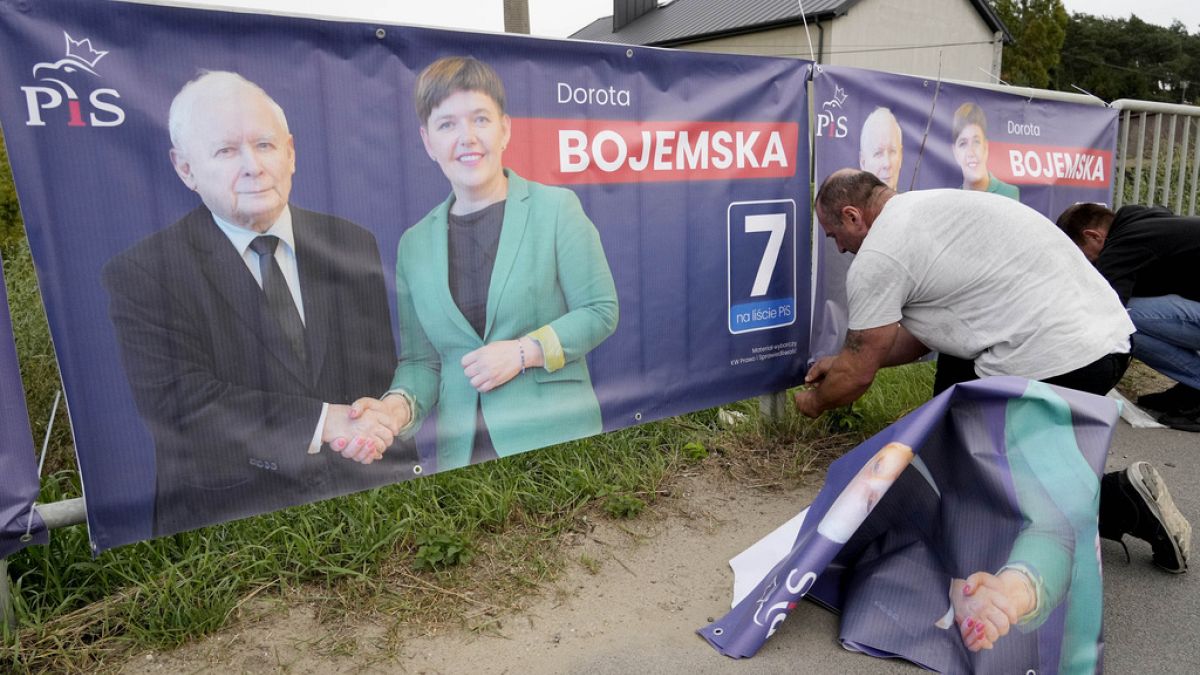Polish people will head to the polls on Sunday in what is shaping up to be a critical election when it comes to the future of the European Union.
The country’s two main parties, the conservative nationalist right-wing Law and Justice party (PiS), currently in power, and the liberal pro-European right-wing Civic Platform (PO), are both unlikely to be able to form a government alone.
But this is not stopping members of the European Parliament in Brussels from having their own opinions, as they realise the importance of the vote.
Carlo Fidanza, an Italian MEP from the same political group as PiS told Euronews that Poland’s stance on Ukraine has been important for the EU’s view as a whole on the war.
“Poland has become even more important in the past year and a half because of its very strong opposition to Putin's expansionist policies.”
“In Ukraine, therefore, a confirmation of the governing majority would go in continuity with this choice and would certainly be a factor of stability for the geopolitical posture of the European Union as a whole.”
Another MEP, Terry Reintke, who co-chairs the Greens/EFA Group in the European Parliament is hoping for PO to come out of the elections victorious, despite it being part of a different political group.
"I would say that the main difference is that the current opposition has clearly taken a constructive stance when it comes to engaging on the European level,” Reintke said in an interview.
“So when we see the challenges that are ahead of us, be it around the question how are we going to shape the green transformation, migration, politics, also other issues, they have maybe taken conservative standpoints, but they are constructive in engaging on the European level.”
The current Polish government has taken a hostile attitude towards the EU, as Arianna Angeli, a professor of comparative constitutional law at the University of Milan, explained to Euronews.
The main clash between Warsaw and Brussels concerns respect for the rule of law and independence of the judiciary from political influence.
“These constant violations will at some point generate tensions with the other member countries of the Union, as well, and eventually, in my opinion, it could also create problems in the functioning mechanisms of the Union, which is now experiencing a constant internal siege by one of its own member states.”
On Sunday, Brussels will be keeping an eye not only on the election but also on the Polish government’s referendum. Voters will be asked four questions, one on whether they support the admission of what PiS call “illegal immigrants” from the Middle East and Africa, in line with the EU’s mandatory relocation rules, designed to ease the burden on the bloc’s border countries.
